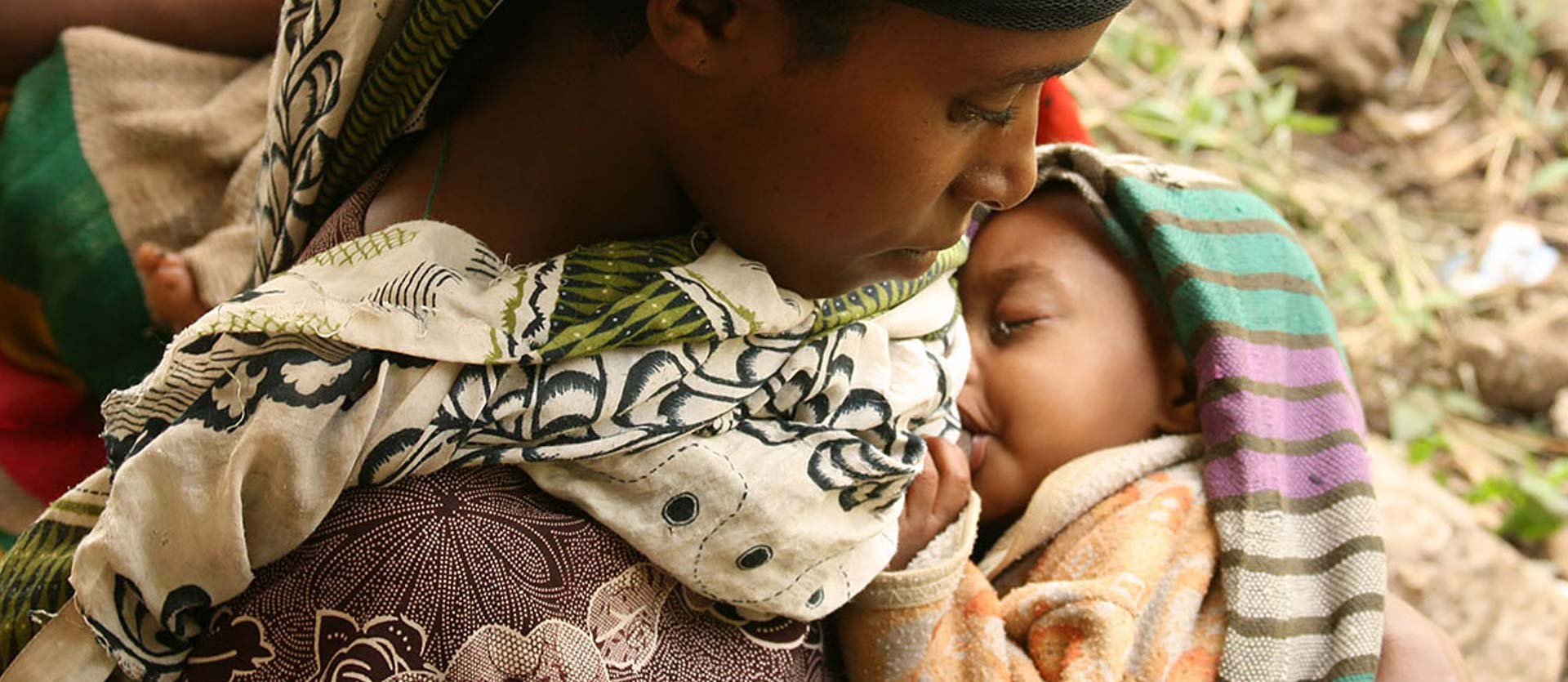![]()
Nutrition
Maternal anemia, even in moderate cases, increases the risk of dying during childbirth. Iron deficiency also contributes to poor birth outcomes and can reduce iron stores at birth, jeopardizing cognitive development and increasing the risk of child mortality. Moreover, stunting — a complex process that occurs during the first 1,000 days of life, from conception until a child’s second birthday — is due to inadequate infant and young child feeding and recurrent/chronic illness and compromises adult height attainment, ability to learn, grade completion in school, and productivity.
In collaboration with Ministries of Health and partners, MCSP focused on evidence-based interventions to prevent and reduce all forms of malnutrition by integrating nutrition into reproductive, maternal, newborn and child health platforms.
We focused on addressing neglected barriers to optimal maternal, infant and young child nutrition to prevent all forms of malnutrition, including stunting. These included identifying and addressing challenges to exclusive breastfeeding, improving complementary feeding practices through the development of local recipes, and addressing “junk food” consumption in children less than two years of age within the context of infant and young child feeding (IYCF) programming. MCSP also addressed maternal nutrition and anemia during pregnancy through an integrated package, which includes iron-folic acid (IFA) supplementation. Taking a “learning by doing” approach, the Program used global and local evidence to address these barriers through program implementation at the health facility and community level in USAID high-priority countries, including DR Congo, Egypt, Ghana, Guatemala, Haiti, Kenya, Malawi, Mozambique, Pakistan, Tanzania and Zambia.
We also provided nutrition expertise to increase the integration and reach of nutrition interventions through integrated health programming, with tailored social behavior change communication (SBCC) interventions and engagement of key influential community members, such as elder women and men.
The Program continued work begun under USAID’s predecessor Maternal and Child Health Integrated Program (MCHIP) to support maternal anemia prevention and control using an integrated package of interventions to address the major causes of anemia: nutritional deficiencies and parasitic infections due to malaria and soil-transmitted helminth infections. New to MCSP was an updated version of the K4Health Integrated Anemia Prevention and Control Toolkit, which was developed under MCHIP, with an emphasis on providing guidance and best practices on program design and implementation for anemia programming.

